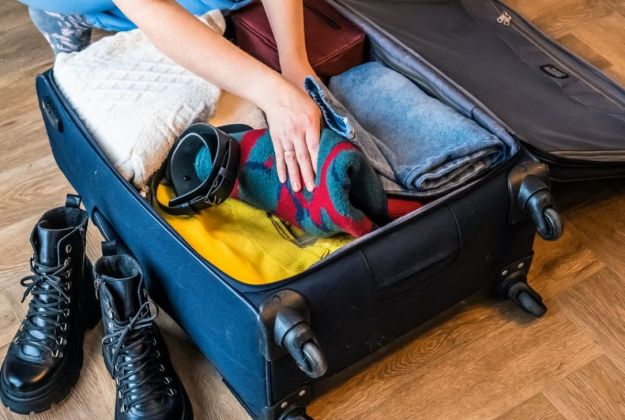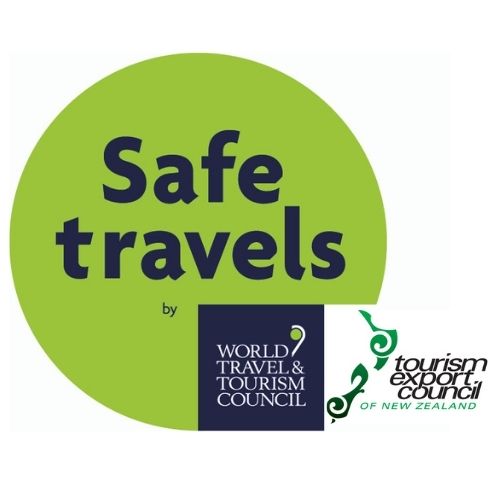
Health & Safety
Your Safety
New Zealand is one of the safest travel destinations in the world, with a low crime rate, few endemic diseases and a first-class healthcare and accident compensation system. However we still recommend you observe the same precautions with your personal safety and possessions as you would in any other country, or at home:
•Invest in travel insurance before leaving home
•Don't leave valuables (especially your passport, cash or cameras) in parked cars or campervans, particularly at scenic spots or at trail-heads for popular tramps
•Avoid walking in isolated, unlit areas at night
•Carry a basic first-aid kit for use in emergencies
In New Zealand you can ask for help from the police whenever you are unsure or feel threatened - they are happy to provide information and advice. Do report any theft and crime to the police immediately.
In an emergency (Fire, Police, Ambulance, Search & Rescue) dial 111 from any phone.
Accidents and Health Insurance
With a little care and common sense, your visit to New Zealand should be accident-free. If you are injured here, you may need the help of the Accident Compensation Corporation (ACC) - New Zealand's accident compensation scheme.
In New Zealand, you cannot sue anyone for compensatory damages if you are injured. Instead ACC helps pay for your care - and that means paying towards the cost of your treatment and helping in your recovery while you remain in New Zealand.
You still need to purchase your own travel and medical insurance because ACC does not cover everything. ACC only covers treatment and rehabilitation in New Zealand, and usually you must pay part of the cost yourself. If you have a serious injury, with long-term effects, you may also be eligible to be assessed for lump-sum compensation once the injury is stable.
The ACC does not pay any additional costs resulting from an accident, for example delayed or curtailed travel costs, travel home, treatment at home and loss of income in your home country.
We strongly advise you to arrange your own health insurance. New Zealand's public and private medical/hospital facilities provide a high standard of treatment and service but it is important to note these services are not free to visitors, except as a result of an accident.
Visitors bringing in a quantity of medication are advised to carry a doctor's certificate to avoid possible problems with New Zealand Customs. Doctor's prescriptions are needed to obtain certain drugs in New Zealand.
Vaccinations
No vaccinations are required to enter New Zealand.
Adventure Activities
New Zealand is known for its great outdoors. If partaking in an adventure activity, clients need to have reasonable physical fitness and be in good health. Clients should be aware that a potential for risk is involved when booking adventure activities such as, but not limited to; abseiling, canyoning, zip wires, high wires, rafting, kayaking, off roading, snorkelling, diving, mountain biking, trekking, ski and snow mobiling. Adventure operators provide a Risk Disclosure statement for the clients understanding and agreement before they partake in that activity.
Safety in the water
Given New Zealand's subtropical climate, it is no surprise that New Zealanders like to spend so much of their leisure time in the water. However water can conceal hazards. We recommend that you visit Water Safety New Zealand's website, for advice on how to stay safe on New Zealand's beaches and waterways.
Beaches with potential hazards are often patrolled by lifeguards, who put up yellow and red flags - Water Safety New Zealand recommend that between these flags is the safest place to swim on these beaches.
Other advice includes having an adult watching over children at all times, to listen to advice from life guards, never swim or surf alone, learning to recognise rip currents, always using safe equipment, never swimming or surfing when tired or cold, considering other surf users and staying out of the water if in doubt.
Safety Precautions
Although there are no snakes or dangerous wild animals in New Zealand, you should be aware of the following:
Weather - Weather conditions in New Zealand alpine areas can change rapidly. Be prepared for cold wet weather if you plan to walk in our National Parks, whatever the time of year.
Sandflies - In wetter areas, particularly in Fiordland, sandflies can be pests, but are effectively controlled by use of an insect repellent.
Giardia - Giardia is a water-borne parasite that causes diarrhoea. To avoid contracting it, it is best not to drink water from lakes, ponds or rivers without first boiling, chemically treating or filtering it.
Sunburn - New Zealand's clear, unpolluted atmosphere and relatively low latitudes produce sunlight stronger than much of Europe or North America, so be prepared to wear hats and sun block if you plan to be out in the sun for more than 15-20 minutes
Adventure Activity Risk Disclosures
Our Reviews
Thank you so much for organising our trip of a lifetime around New Zealand. Your tips and suggestions made the best use of our time and introduced us to...
Scott & Sue Wallace, Canada
We absolutely loved our trip around New Zealand. Everyone was so welcoming and friendly! Matt has some mobility issues to deal with so it was fantastic...
Georgia & Matt Pace, USA
Thank you so much for your excellent arrangements and cooperation pre-tour and while on tour, constantly replying to all my queries.
Munish, India
General Travel New Zealand, is extraordinary. Highly recommended. Good hotels, good itinerary. Every thing is conducted clockwork!
Asha Singh, India
Just a quick note to let you know that all went extremely well with our New Zealand Tour. Our accommodations were excellent – breakfasts were superb!...
Kashif Mohamed, India
Your prompt responses, attention to detail, and cooperative approach made the entire planning process smooth and stress-free. The clients are absolutely...
Shreya Gupta, India
Your meticulous planning enabled a smooth travel experience for us. We are grateful to you in ensuring meeting our needs with regards to halal meal and my...
M. Youseff, Singapore






